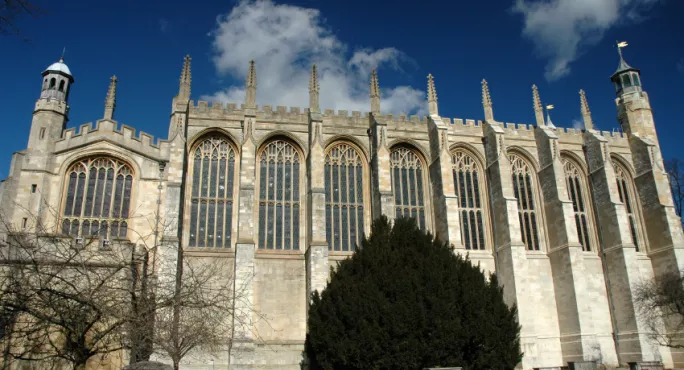Exclusive: reforms are making GCSEs ‘less relevant’, former head of Eton warns

Tony Little, the former head master of Eton College, has called for an overhaul of GCSEs to reduce the focus on written exams and increase reliance on teacher assessment of students’ problem-solving and collaboration skills.
In an interview with TES, Mr Little, who retired from Eton this summer, said exams should not be “the only game in town” and that raising the participation age to 18 offered an opportunity for a “more innovative view of assessment” at 16. In their current form, GCSEs were becoming “less relevant”, he added.
His suggestions are in stark contrast to the approach of the Department for Education, which is reducing the use of non-exam assessment in its reformed GCSEs.
A report published by the qualifications regulator, Ofqual, this month says that written exams “should be the default method of assessment”. It outlines plans to remove all non-exam assessment from GCSEs in classical civilisation, statistics and ancient history and to reduce the share of marks from non-exam assessment in GCSE media studies from 60 per cent to 30 per cent.
But Mr Little warned that too great an emphasis on written exams caused some students to lack self-worth because it did not give them the chance to “show what they can do”.
Instead, he said, there should be a “hybrid” model in which, alongside written exams, students were assessed on a wide range of skills including problem-solving and collaboration. Teachers should carry out this assessment, and should receive in-depth training to enable them to do so effectively, he added.
Helping talents to blossom
Mr Little argued that non-exam assessment could be built into most subjects. In history, he said, pupils could be “accredited for developing skills in archaeology - I mean Time Team stuff.”
He added that the “heart of a good education” lay in identifying pupils’ individual talents and allowing these talents to blossom.
“The purpose of education is to give young people a sense of self worth,” he said. “It’s [about] enabling all young people to believe in themselves, to understand their failings and to know what they can offer.
“That’s what gives them the foundation to feel secure in dealing with the adult world, and the skills to navigate an often complex landscape. We should assess in a way that enforces that.”
Pupils at schools in England took more exams than those elsewhere in Western Europe. Yet there was “no particular evidence we’re doing better” as a result of this, he said.
Mr Little acknowledged that introducing this model would be “difficult” and would “require more trust of the teacher”. However, he added: “From an educational point of view, I don’t have the slightest shadow of a doubt it would be a good thing to do.”
‘Increasingly digitised world’
Suzanne O’Farrell, a curriculum and assessment specialist at the Association of School and College Leaders, said she supported much of what Mr Little proposed.
“In an increasingly digitised world in which independent learning is a key skill and employers are looking for a range of qualities not immediately delivered through our current education system, it is time to reflect on how would we [should] construct the curriculum,” she said.
The ATL teaching union has also called for greater use of teacher assessment and has warned that GCSEs are at risk of becoming “redundant” because all pupils stayed in education until 18.
The CBI, which represents UK businesses, has called for the abolition of GCSEs, arguing that the raising of the participation age means they are now “past their sell-by date”.
A DfE spokesperson said: “It is vital that all pupils have access to an excellent, well-rounded education. We make no apologies for placing high expectations at the heart of our schools, with a rigorous new curriculum, world-class exams and an accountability system where schools are recognised for the progress all pupils make across a broad range of subjects.
“Alongside this we are investing £5 million in character education to help pupils develop the grit and resilience they need to succeed in school and later life, while giving teachers the freedom to develop lessons that will excite and inspire their pupils.”
Keep reading for just £1 per month
You've reached your limit of free articles this month. Subscribe for £1 per month for three months and get:
- Unlimited access to all Tes magazine content
- Exclusive subscriber-only stories
- Award-winning email newsletters



